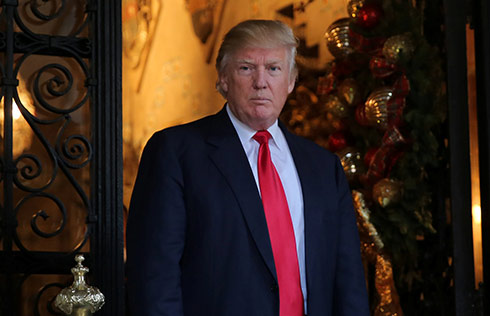Much optimism for 2017
 |
|
British Prime Minister Theresa May meets with China's State Councilor Yang Jiechi in London on Tuesday. [Photo/Agencies] |
China and the UK have built a solid base on which to continue the "golden era" of their relations in 2017, be it through cultural, economic or trade bonds.
True, the tone may be slightly different under Prime Minister Theresa May's administration, compared to the way things were handled under her predecessor, David Cameron, and his avidly pro-China Chancellor of the Exchequer, George Osborne.
Cameron and Osborne did not continue in their roles after losing the referendum about the UK's continued membership of the European Union back in June, and May, who had held the demanding post of Home Secretary under Cameron for six years, took over.
Cameron, who famously took President Xi Jinping to his local pub for fish and chips and a pint during the latter's state visit in October 2015, was eager to encourage a better relationship with China, with his political ally and sidekick Osborne active in promoting relations.
Just on Tuesday British Foreign Secretary Boris Johnson met with visiting Chinese State Councilor Yang Jiechi in London as part of the 8th China-UK Strategic Dialogue, and they reaffirmed their commitment to the "golden era". Yang went on to meet both May and Chancellor Philip Hammond, another sign that the ever-closer ties between the two countries continues.
May is known to be a cautious politician and it was entirely in character for her to take time to bring herself up to speed on such a thorny issue as a French-designed nuclear power plant at Hinkley Point in Somerset, southwest England, which will carry significant Chinese investment.
In the event, the deal passed scrutiny-seen by many as a triumph for May's policy as much as China's patient and mature "take your time" attitude.
May has indicated the government-backed Northern Powerhouse Partnership, which aims to bring industry and services to Manchester, Leeds, Liverpool, Newcastle and Sheffield, will continue to have government backing. China has also said it supports the idea and there's already huge Chinese infrastructure investment around Manchester Airport, as well as long-term plans to invest in Sheffield.
Increasingly, as Britain nears the planned date in March when Brexit is triggered, all eyes will be on a bilateral Free Trade Agreement, which Britain says it favors as a matter of priority.
Britain has been unable to strike a deal with China because of its membership of the EU, and the chances of an FTA between China and the EU seem ever remote.
Finally, there's the Trump card. The new US president-elect seems intent on picking fights with China. No such tension exists between the UK and China.


























